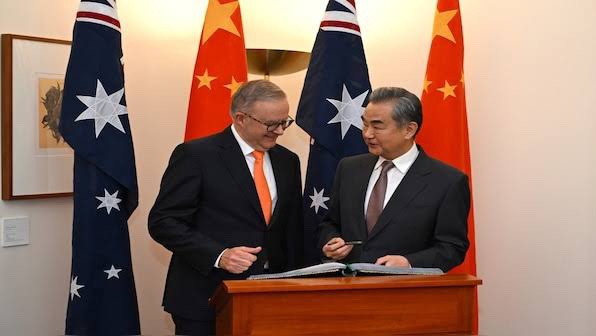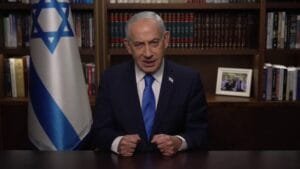Australia hosts China FM, sees ‘stability’ in ties

China and Australia have declared a semblance of stability in their relations following talks held in Canberra on Wednesday. Despite apparent strains over various issues including a prominent prisoner, trade disputes, and the recent crackdown in Hong Kong, both nations expressed optimism about the direction of their relationship.
Chinese Foreign Minister Wang Yi’s visit marked his first to Australia since 2017 and was strategically aimed at resolving disputes ranging from the origins of the Covid-19 pandemic to military deployments. The meeting was characterized by optimistic rhetoric, with Wang stating that the two sides had “broken the ice,” emphasizing the slow but steady development of mutual trust and positive momentum.

Australian Foreign Minister Penny Wong echoed Wang’s sentiment, applauding the renewed stability in relations and emphasizing the significance of acknowledging the progress made in a relatively short period. Additionally, there was a subtle indication of mutual goodwill, with discussions touching upon the potential extension of Australia’s hosting of two giant pandas loaned by China in 2009—a diplomatic gesture favored by Beijing.
However, deep-seated tensions and fundamental disagreements regarding the Asia-Pacific region remained evident. Wong addressed concerns about the sentencing of Dr. Yang Hengjun, a Chinese-Australian writer convicted of espionage in February, highlighting Australia’s shock at the imposed sentence and emphasizing Yang’s denial of the charges.
Human rights issues in Xinjiang, Tibet, and Hong Kong were also raised by Wong, drawing attention to the recent passage of national security reforms in Hong Kong, which further criminalize dissent. These remarks, critical of Beijing’s policies, are unlikely to have been well-received by Wang and the Chinese delegation, given China’s previous dismissals of similar criticisms from other countries.
Against the backdrop of the diplomatic discussions, protesters congregated outside Australia’s parliament, drawing attention to alleged human rights abuses within China. A small group later clashed with police near the Chinese embassy, underscoring the sensitivity and complexity of the issues at hand.
The strained relationship between Australia and China dates back to 2018 when Canberra excluded telecommunications giant Huawei from its 5G network over security concerns. Subsequent actions, including laws on foreign interference and calls for a Covid-19 origins investigation, further exacerbated tensions, leading to trade restrictions and diplomatic frictions. Despite recent progress in easing trade barriers, significant challenges remain as both nations navigate complex economic and geopolitical landscapes.














